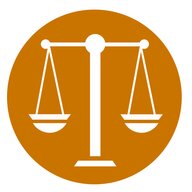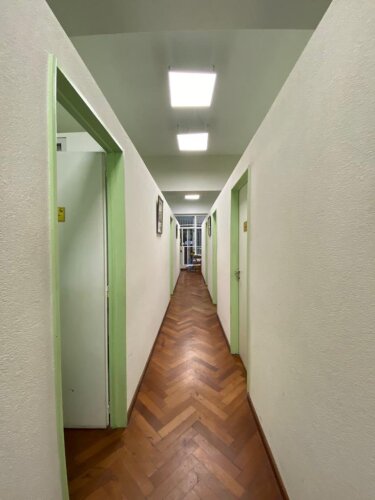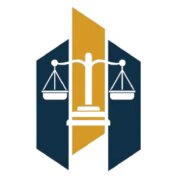Best Civil Rights Lawyers in Buenos Aires
Share your needs with us, get contacted by law firms.
Free. Takes 2 min.
List of the best lawyers in Buenos Aires, Argentina
About Civil Rights Law in Buenos Aires, Argentina:
Civil rights in Buenos Aires, Argentina are protected under the National Constitution and various federal and local laws. These rights include the right to equality, freedom of expression, right to due process, and protection against discrimination.
Why You May Need a Lawyer:
You may need a lawyer for civil rights issues in Buenos Aires if you have experienced discrimination, harassment, or violations of your rights in the workplace, public spaces, or by government authorities.
Local Laws Overview:
Local laws in Buenos Aires, Argentina protect civil rights through various legal mechanisms, including anti-discrimination laws, labor laws, and human rights legislation. It is important to consult with a lawyer familiar with these laws to understand your rights and legal options.
Frequently Asked Questions:
1. What are my rights in Buenos Aires, Argentina?
In Buenos Aires, Argentina, you have the right to equality, freedom of expression, due process, and protection against discrimination based on race, gender, religion, or other factors.
2. How do I file a complaint for discrimination in Buenos Aires?
To file a complaint for discrimination in Buenos Aires, you can contact the local Human Rights Office or seek legal assistance from a civil rights lawyer.
3. Can I be fired for expressing my political views in Buenos Aires?
In Buenos Aires, Argentina, employees are protected from being fired for expressing their political views under labor laws that guarantee freedom of expression in the workplace.
4. What is the process for reporting police abuse in Buenos Aires?
If you have experienced police abuse in Buenos Aires, you can report the incident to the local Human Rights Office or seek legal assistance to take legal action against the authorities responsible.
5. How can I challenge a violation of my civil rights in Buenos Aires?
You can challenge a violation of your civil rights in Buenos Aires by filing a complaint with the appropriate government agency, seeking mediation, or taking legal action through the courts with the help of a civil rights lawyer.
6. Are there specific laws protecting LGBTQ+ rights in Buenos Aires?
Yes, Buenos Aires has specific laws protecting LGBTQ+ rights, including anti-discrimination laws and legal recognition of same-sex marriage.
7. What are my rights as a worker in Buenos Aires?
As a worker in Buenos Aires, you have the right to fair wages, safe working conditions, protection against discrimination, and the right to join a labor union.
8. Can I be discriminated against based on my disability in Buenos Aires?
No, discrimination based on disability is prohibited by law in Buenos Aires, and individuals with disabilities are entitled to equal rights and opportunities.
9. How can I access legal aid for civil rights issues in Buenos Aires?
You can access legal aid for civil rights issues in Buenos Aires through the local Legal Aid Service or by contacting civil rights advocacy organizations for assistance.
10. Can I seek compensation for civil rights violations in Buenos Aires?
Yes, you may be able to seek compensation for civil rights violations in Buenos Aires through legal action seeking damages for the harm caused by the violation of your rights.
Additional Resources:
For more information on civil rights in Buenos Aires, Argentina, you can contact the National Institute against Discrimination, Xenophobia and Racism (INADI), the Human Rights Office of the City of Buenos Aires, or local civil rights advocacy organizations.
Next Steps:
If you believe your civil rights have been violated in Buenos Aires, it is important to seek legal advice from a qualified civil rights lawyer who can help you understand your rights, options, and the legal processes available to protect and defend your rights.
Lawzana helps you find the best lawyers and law firms in Buenos Aires through a curated and pre-screened list of qualified legal professionals. Our platform offers rankings and detailed profiles of attorneys and law firms, allowing you to compare based on practice areas, including Civil Rights, experience, and client feedback.
Each profile includes a description of the firm's areas of practice, client reviews, team members and partners, year of establishment, spoken languages, office locations, contact information, social media presence, and any published articles or resources. Most firms on our platform speak English and are experienced in both local and international legal matters.
Get a quote from top-rated law firms in Buenos Aires, Argentina — quickly, securely, and without unnecessary hassle.
Disclaimer:
The information provided on this page is for general informational purposes only and does not constitute legal advice. While we strive to ensure the accuracy and relevance of the content, legal information may change over time, and interpretations of the law can vary. You should always consult with a qualified legal professional for advice specific to your situation.
We disclaim all liability for actions taken or not taken based on the content of this page. If you believe any information is incorrect or outdated, please contact us, and we will review and update it where appropriate.













